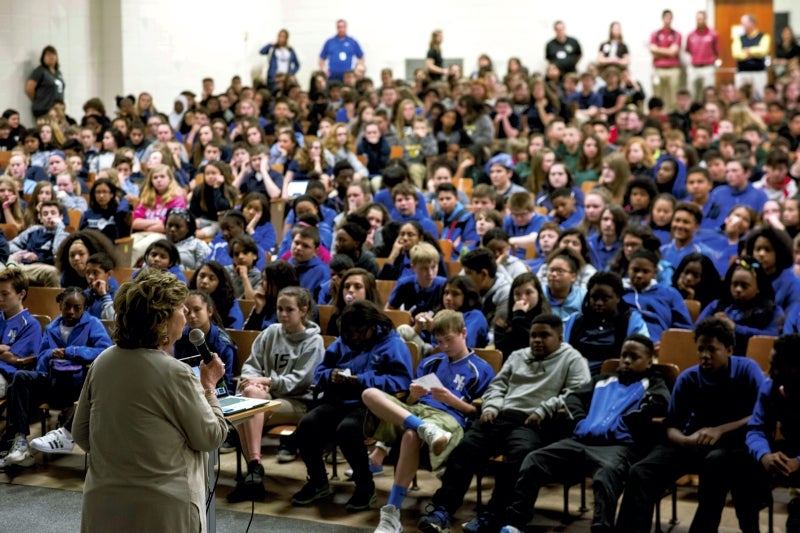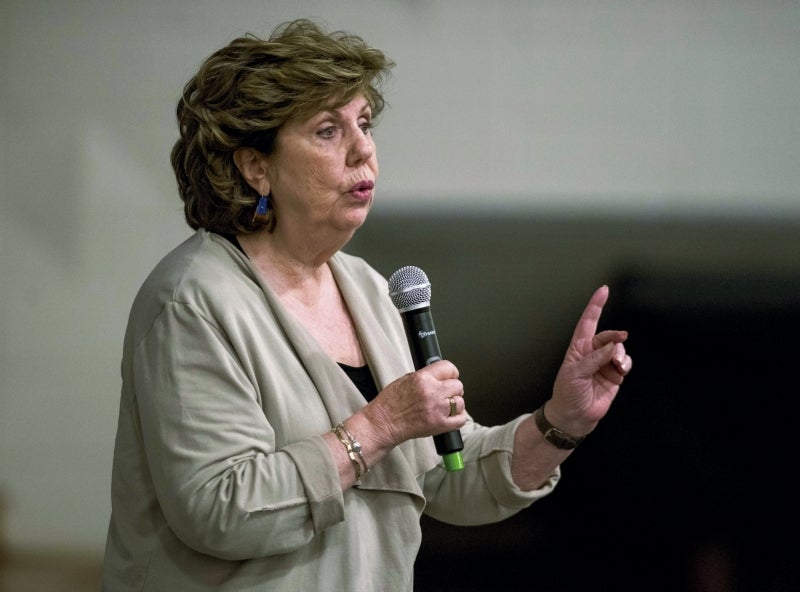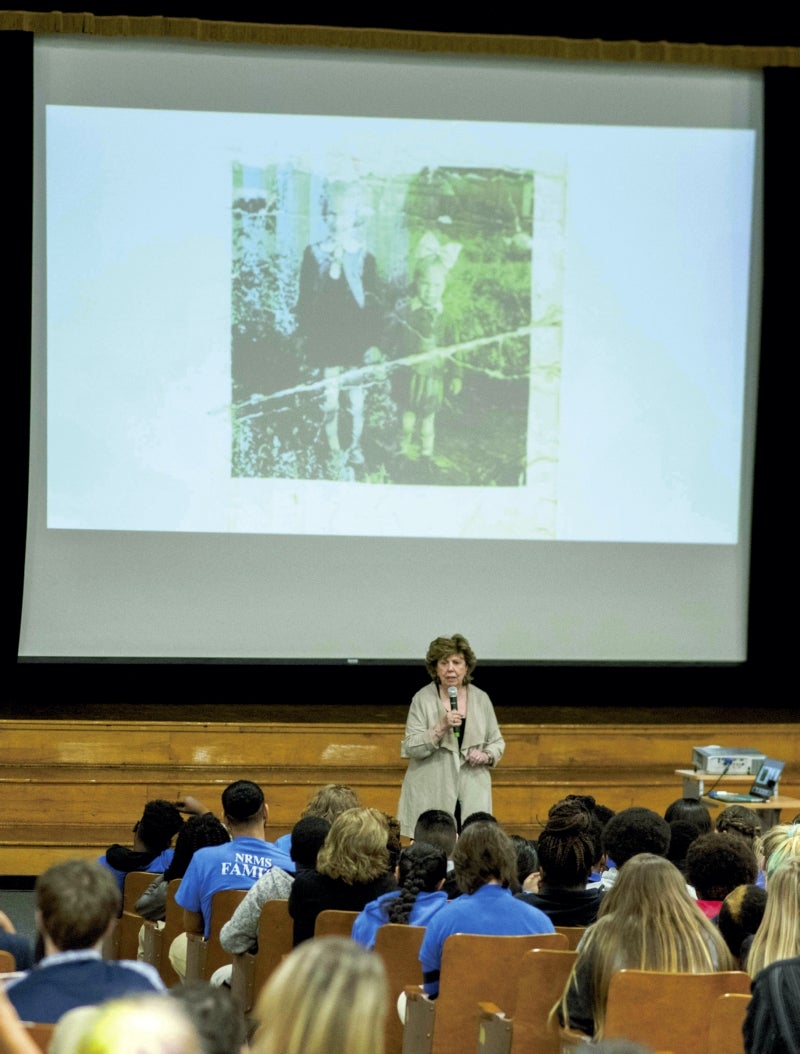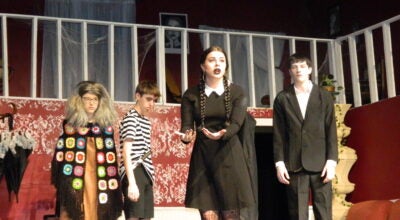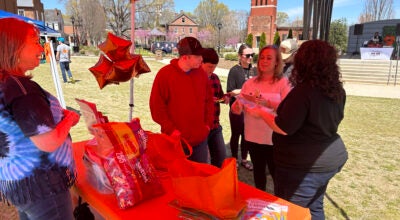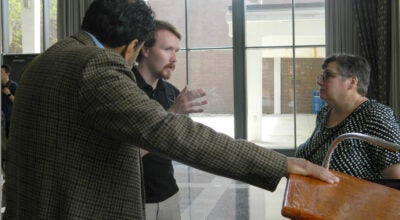‘This is my story:’ Holocaust survivor speaks to students
Published 12:00 am Thursday, March 9, 2017
By Rebecca Rider
rebecca.rider@salisburypost.com
LANDIS — For the past several years, local seventh-graders have spent part of the year learning about the Holocaust. But few have ever gotten to hear directly from someone who lived through it.
Until Wednesday, that is.
Rowan-Salisbury Schools’ more than 1,000 seventh-graders packed into Corriher-Lipe Middle School on Wednesday for an all-day program, the first of its kind in the district. Organizers called it the Holocaust and WWII Humanities Conference.
The keynote speaker was Suly Chenkin, 76, a child survivor of the Holocaust. Chenkin, born in Kovno, Lithuania, in a Jewish family, was an infant when the war began. Its hardships and horrors form some of her earliest memories.
Students from the district’s seven middle schools trickled into Corriher-Lipe’s auditorium in shifts to hear Chenkin share her story of survival — which she called “a total miracle.”
When she was 6 months old, the Nazis invaded Lithuania and forced her and her mother and father — along with Kovno’s 40,000 other Jews — into the Kovno ghetto. Chenkin spent the first three years of her life in that ghetto while her parents worked at jobs mandated by the German troops.
“I was just growing up, like any child,” she said.
But life there was hard and uncertain. People were pulled from the streets at random and taken to camps. One day, the Nazis forced people to stand in line and pulled those who were considered too old, too young or too feeble — roughly 10,000 people in all. They were never seen again.
When she was 3, Chenkin’s parents learned that the Nazis were removing children from other ghettos. They began to look for a Christian family outside the ghetto that would hide Chenkin. They excavated a small hiding place under the stairs of their home, praying they would never have to use it.
But they did. Early one morning, Chenkin’s father woke her up. She remembers that she was tired and wanted to cry until she saw the terror on her father’s face. They went to the hiding place.
“There was this round hole and total darkness,” she recalled.
Chenkin’s mother scrambled in, and then Chenkin was lowered down, bumping her head on the way. Chenkin said her mother held her and begged her not to cry.
“If you cry, they’ll kill us,” her mother said.
Soon after, the soldiers came with a hatchet and demanded that Chenkin’s father reveal the hiding place. He took them to the ice cellar instead, and they left a short time later. After that, Chenkin wasn’t allowed to leave the house.
“My parents knew they were running out of miracles and out of time,” she said.
But not quite yet. The family was able to make contact with an Orthodox Jewish woman named Miriam who had not been confined to the ghetto. Using her contacts with local families, Miriam helped smuggle dozens of children out of Kovno’s ghetto.
Desperate for her to survive, Chenkin’s parents gave her something to knock her unconscious, placed her in a burlap sack and put her on a potato cart. Still unconscious and inside the sack, Chenkin was tossed over the ghetto wall, where she was retrieved by Miriam and a woman who agreed to hide her.
“My war was over in no time,” she said.
A few weeks later, the Russians liberated the ghetto, but Chenkin’s parents were nowhere to be found. After the Nazis were ousted, Miriam took Chenkin in and decided to make her way to Israel, taking Chenkin and her own children with her.
They had no money, no passports and no identification. For 10 months, they made their way on foot, traveling by night and hiding in graveyards during the day until they reached the city of Haifa in modern-day Israel. Chenkin was 5 years old.
But the war was over.
“Europe was like a beehive,” she remembers, “people looking for their loved ones.”
Through word of mouth, Chenkin learned that her parents were still alive. Chenkin’s mother heard her daughter was safe in Jerusalem. Chenkin said her mother fainted when she learned that her daughter was alive and well. Her mother found her father, then made her way to Israel to be reunited with Chenkin.
Soon after, the family relocated to Cuba, then came to America when Fidel Castro rose to power. Chenkin said she later learned that out of Kovno’s original 40,000 Jews, only about 2,000 survived the war.
“This is my story,” she told students.
The conference also featured Alan Gratz, author of “Prisoner B-3087,” as well as speakers from the Stan Greenspon Center of Peace and Social Justice at Queens University of Charlotte and the Center for Holocaust Genocide and Human Rights.
The conference was made possible through partnerships with Queens University, the University of North Carolina at Charlotte, the N.C. Holocaust Council, the Veterans Association, Carolina Shag Co. and others.
Contact reporter Rebecca Rider at 704-797-4264.


